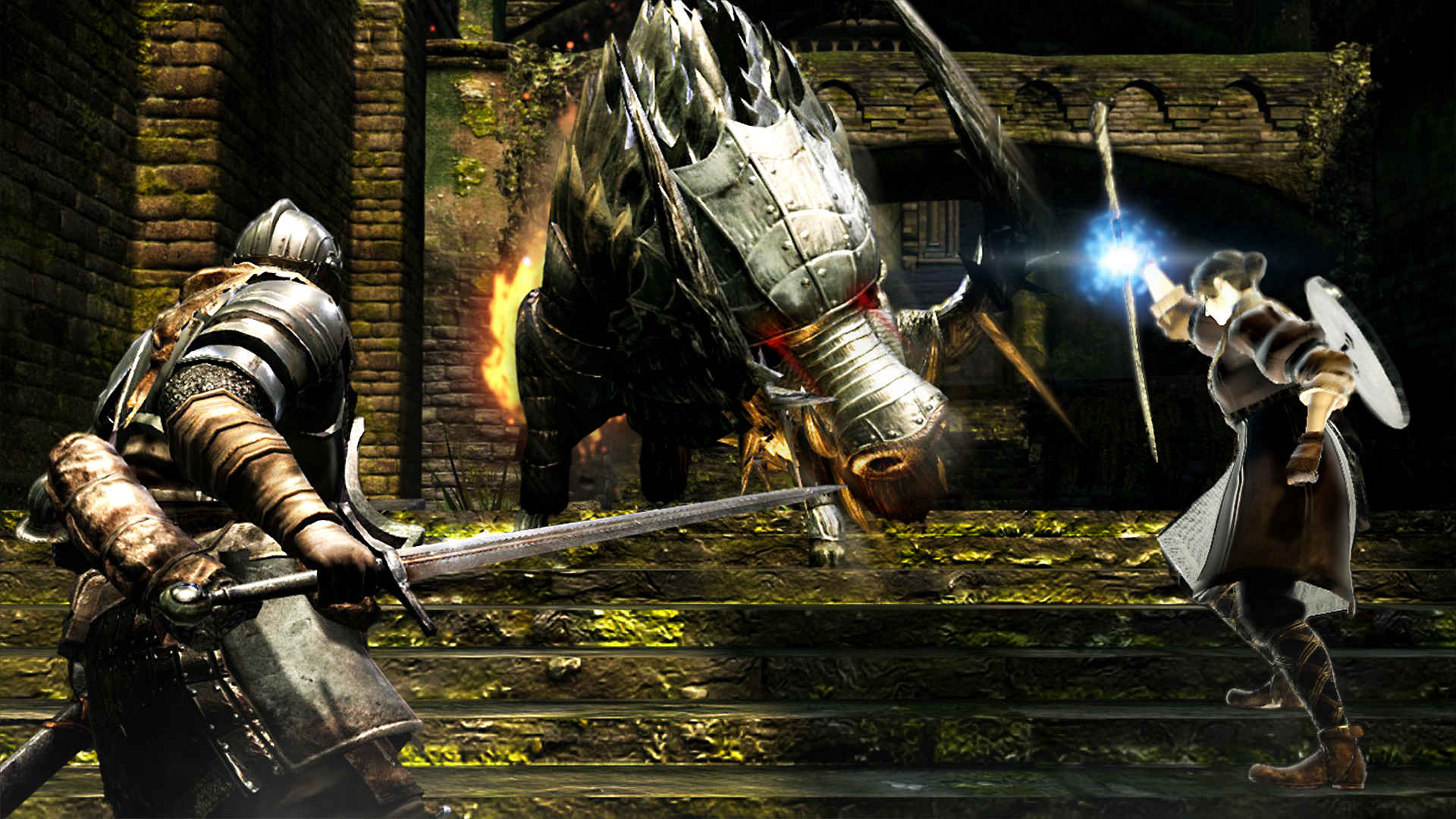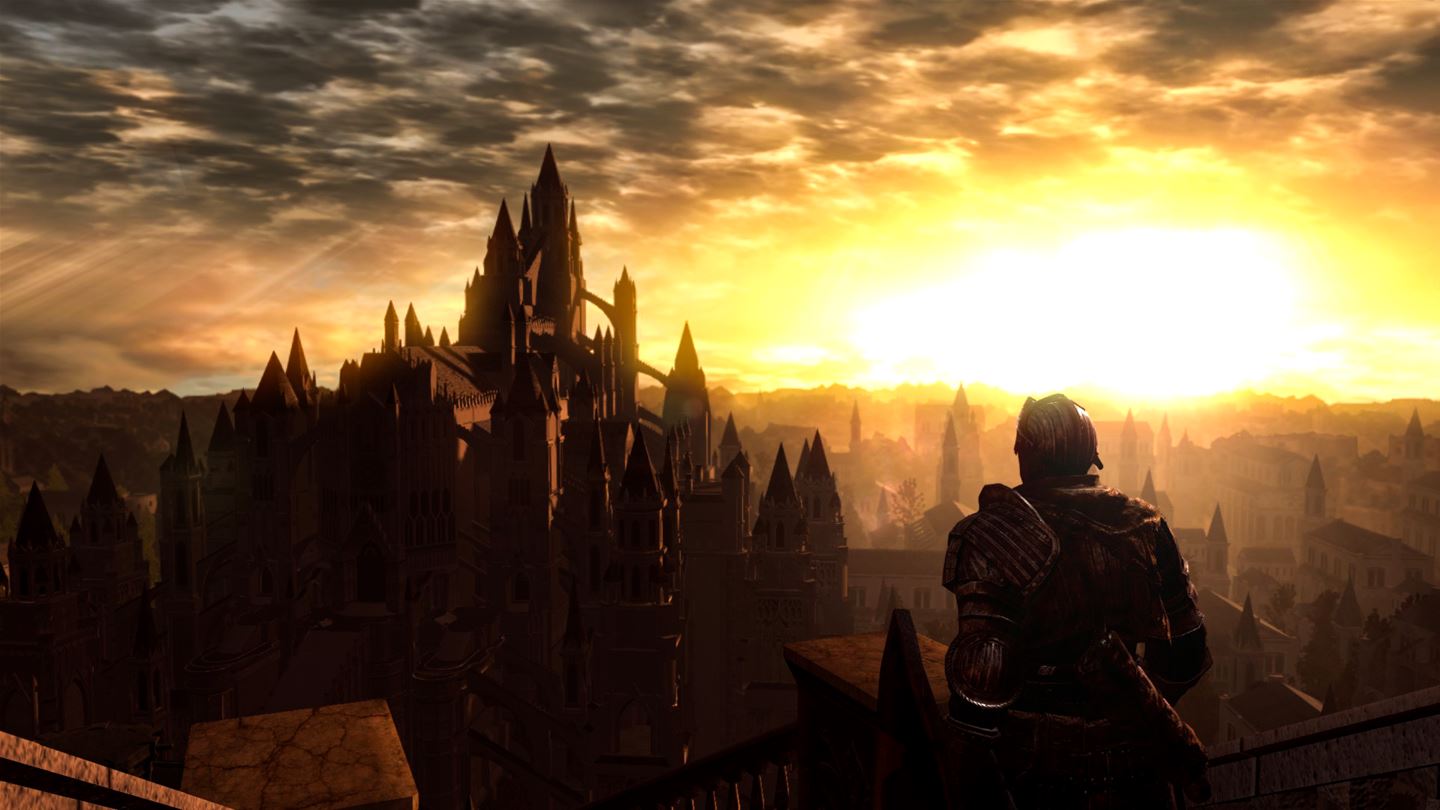Is Dark Souls: Remastered worth it on Xbox One? Let's take a look.
Dark Souls: Remastered is great but the sequels are better.

If you own an Xbox One, you may have only played Dark Souls II: Scholar of the First Sin or Dark Souls III on the system. The original Dark Souls was only a backward compatible title which suffered from poor performance and visuals on the console. Luckily, with the launch of Dark Souls: Remastered, the trilogy is available in a native presentation. The new game might not look as stellar as the sequels – even though it is a remaster – it still fixes some of the major issues with the original and retains its mystique years later.
Dark Souls is much more challenging than its sequels. There are less save points and the enemies are much tougher. Unfortunately, the movement mechanics are also a little clunky and much less refined than what FromSoftware was able to achieve with Dark Souls III. Curiously, even though Dark Souls III runs at 30 FPS on Xbox One, it feels better than even this remaster.
Most of the combat revolves around dodging, striking and blocking. Dark Souls is unforgiving so any mistake will cost you greatly. Luckily, there's always the option to grind lower-level monsters for souls and become stronger by increasing your health and strength. Sometimes this is necessary if you can't defeat a boss.
As you probably know, Dark Souls doesn't follow a traditional plot because the story is told through dialogues and boss encounters. While the world is filled with secrets and tales of civilizations past, your task simply revolves around defeating a few titanic bosses and then deciding the fate of humanity by rekindling a fire. Along your journey you have to explore everything from dark forests, treacherous sewers, and underground cities.
The most remarkable aspect of the level design has to be how each area is essentially connected to the central "Firelink Shire". There is no map so finding shortcuts and bonfires is necessary for further progression. You have to return to them to level up. Keeping tabs on certain merchants and blacksmiths is also necessary to upgrade your weapons or armor.

Dark Souls: Remastered runs flawlessly on Xbox One X and looks great on a 4K display. The game seems slightly blurry so it doesn't appear to have a native 4K presentation, but the frame rate is locked at a steady 60 FPS no matter what the game throws your way. From our understanding, both the Xbox One X and PlayStation 4 Pro versions render at 1800p. This is a curious decision because the developer could've easily increased the resolution to native 4K on Microsoft's new console. This seems like a choice borne out of convenience because the textures are blurry on numerous occasions and the lighting is subpar.
If you were hoping for a game on the level of Gears of War: Ultimate Edition, you'll be disappointed. The locked 60 FPS gives you a smoother experience because it reduces input lag and makes combat feel even better. That's the main reason Xbox One owners should consider this version because, aside from the resolution boost, the game isn't gorgeous by any stretch of the imagination.
Get the Windows Central Newsletter
All the latest news, reviews, and guides for Windows and Xbox diehards.

Overall, Dark Souls: Remastered lives up to expectations because the combat feels great with the bump in the frame rate. However, it's evident that Dark Souls II and Dark Souls III are still vastly superior games due to their refined mechanics. If you haven't played the original or love the first game, then Dark Souls: Remastered is the version to get. However, if you're new to the Dark Souls franchise, then I would recommend starting with Dark Souls III because it represents the pinnacle of the series.
Dark Souls: Remastered is currently available for Xbox One, PC, and PlayStation 4 for $39.99. A Nintendo Switch version is scheduled for later this year.
Keep an eye on WindowsCentral.com/Gaming for all the latest in Xbox and Windows 10 gaming, accessories, news, and reviews!
Asher Madan handles gaming news for Windows Central. Before joining Windows Central in 2017, Asher worked for a number of different gaming outlets. He has a background in medical science and is passionate about all forms of entertainment, cooking, and antiquing.

